Whether you’re just starting up with essential oils or you’re looking to expand your collection, there’s a lot to learn! Some oils are great for keeping things clean, while others are fabulous to have handy in the medicine cabinet for when you’re feeling a bit under the weather.
Having a big collection means you’ll have an oil for essentially everything – no pun intended.
It can be intimidating to begin collecting, though, or feeling like you’re getting the most bang for your buck. If you have five essential oils in your house, these are the five you should have… because science.
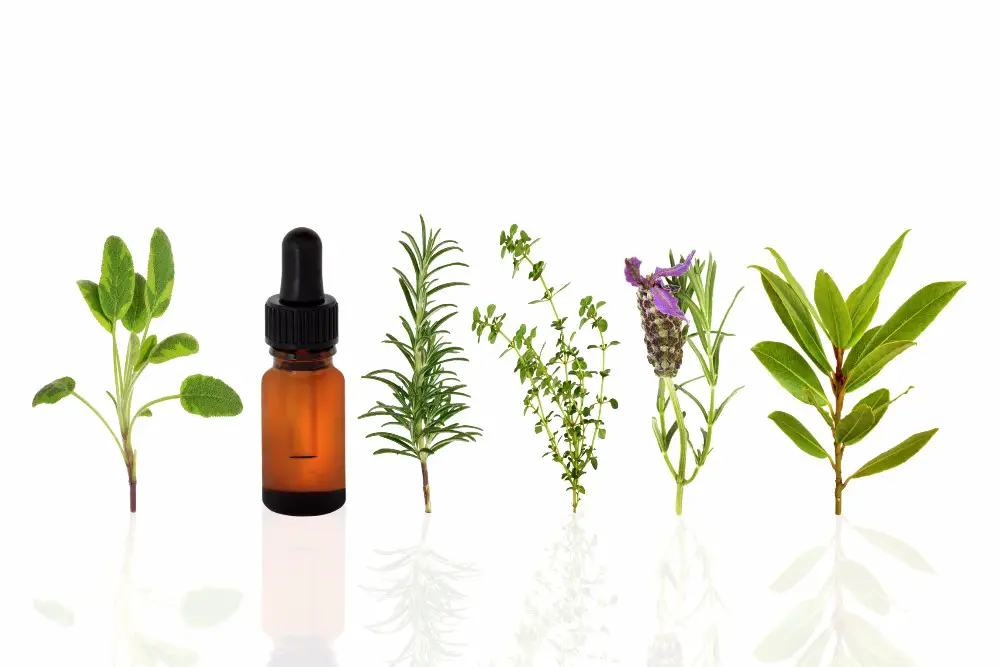
1. Lemon eucalyptus oil
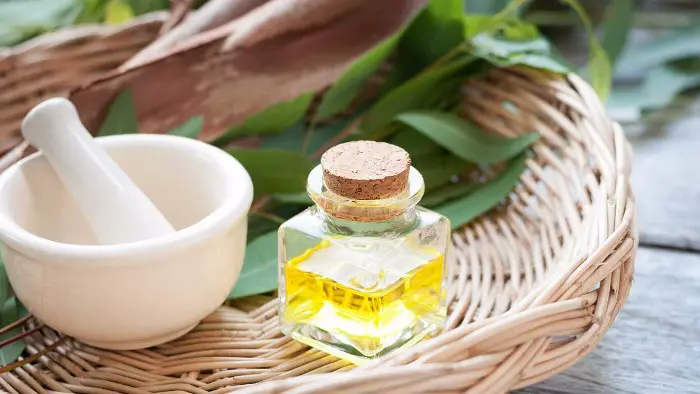
This study shows that essential oils can be used as a natural bug spray effectively which is great news considering some chemicals like DEET in traditional bug sprays can be very harmful to insects, mammals, and potentially humans – especially the kids.
Using natural plant oils instead poses no threat, and can generally be safely used on children under the age of three.
Finally, you can apply most essential oils directly to skin, whereas bug spray is advised to be used primarily on clothing. Finally, essential oils just smell a lot more pleasant than most bug sprays – right?!
You can learn more about the specific compounds that make this oil work to repel insects here. Lemon eucalyptus, for example, is comprised of 85% citronellal, making it quite an obvious choice for bug repellent!
That’s the same scent as those citronella candles you light on your outdoor patio or deck. The only issue is that its effects tend to wear off rather quickly, so you’ll have to continually apply your bug spray.
Quite a few different oils have similar properties to lemon eucalyptus in effectiveness of repelling insects such as citronella, lemongrass, tea tree, or rosemary. You could use any of the following or a mix of oils in the following recipe.
Homemade insect repellent recipe:
- 40 drops of eucalyptus oil
- 1/2 cup witch hazel
- 1/2 cup apple cider vinegar
Mix into a spray bottle and use on body and clothes, avoiding eyes to repel insects. Re-apply every hour for ultimate protection. Purchase lemon eucalyptus here.
2. Thyme oil
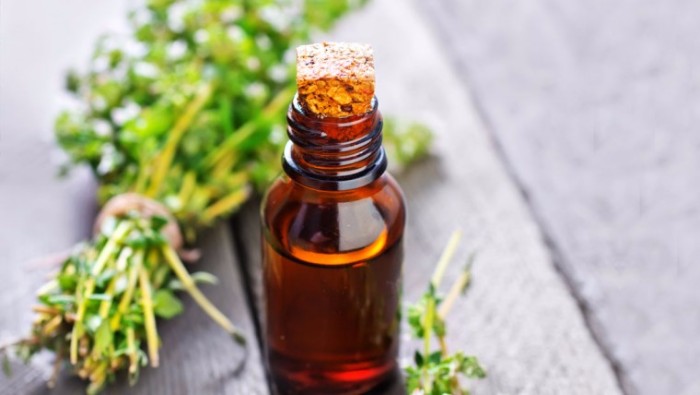
This is easily one of the best options for using in any homemade cleaning agents. Thyme oil has fabulous antimicrobial properties, so it’s very effective at eliminating germs and bacteria on hard surfaces.
Use this in a kitchen or bathroom cleaner with confidence that it will cut through the harmful stuff!
This science comes down to the constituents of the essential oil being soluble in water, because the antimicrobial and anti-fungal activity are due to their solubility in a specific layer of the cell membranes.
Fun stuff, right? Anyways, this means that thyme oil can ward off unwanted bacteria.
This study even shows its effectiveness against salmonella! Additional research also shows that it’s potent against strains of Staphylococcus, Enterococcus, Escherichia and Pseudomonas genera – these include strep throat, urinary tract infections, and the like.
Considering the facts, thyme is fantastic at getting things clean, and this is the must-have household essential oil!
Thyme oil disinfecting cleaning agent recipe:
- 1/2 cup water
- 1/2 cup vodka
- 15 drops thyme oil
- 15 drops lemon oil (optional – for fresh scent)
Mix in a spray bottle and use as you would any other multi-purpose, multi-surface household cleaner! Purchase thyme oil here.
3. Cinnamon bark oil
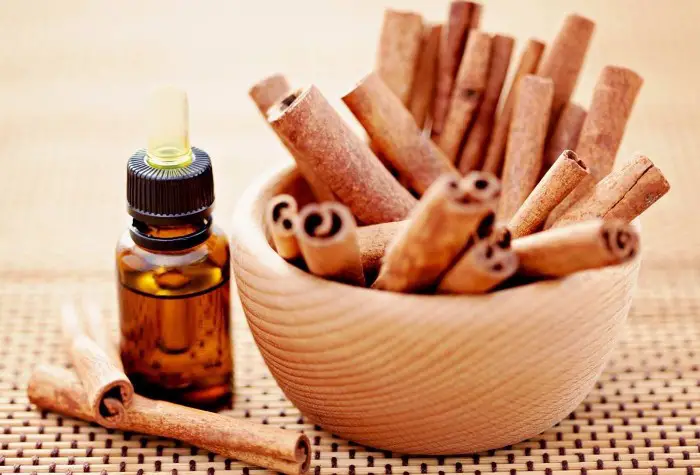
Cinnamon bark is particularly useful for respiratory problems including chronic bronchitis. If you feel yourself coming down with a cough, some cinnamon bark oil could help alleviate the symptoms.
Better yet, inhaling essential oils through a diffuser means the positive effects and benefits can work quickly. This study explains that the vapors of the oil are an effective ‘chemotherapy’ against respiratory tract mycoses such as fungus that causes black mould, ABPA – an allergic reaction that inflames the lungs, common with cystic fibrosis or asthma, strep throat, and more.
It works essentially as a powerful anti-inflammatory agent.
Overall, you can use cinnamon oil to alleviate any respiratory symptoms whether it’s mucous buildup or you’re trying to clear up a stuffy nose. You can simply add a few drops to hot water with some honey in it if you’re treating a sore throat. Purchase cinnamon bark here.
4. Lavender oil
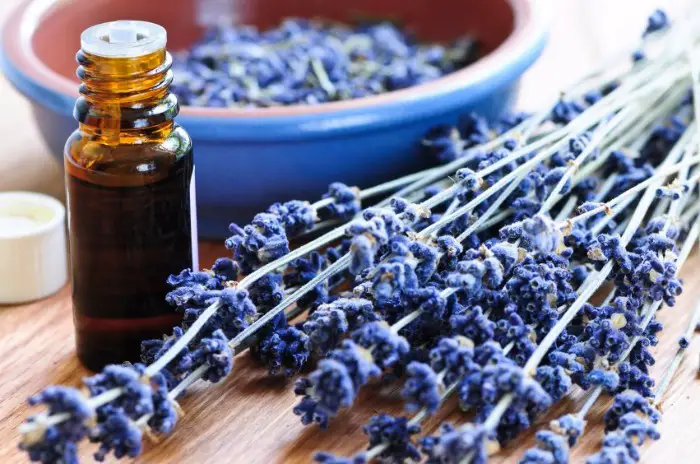
Lavender is commonly known as a relaxation agent. It’s used for stress relief and most often, to promote better sleep. All the hype is true. This lovely-smelling plant produces an oil with big benefits if you have trouble relaxing or getting a restful night of sleep.
Lavender oil’s main constituents – linalool and linalyl acetate – are thought to be what induces a more relaxed state of being. In this study done with mice, lavender oil decreased motility in the mice. Thus, it could potentially have effects reminiscent of muscle relaxers without all the side effects.
Considering the evidence, we know that lavender can calm both the body and the mind, making it a safe and natural sleep supplement. Lavender oil has also been studied as a component of lower back pain relief, in conjunction with acupressure.
You can diffuse lavender oil before you go to bed at night, or use it in a relaxing bath. You could rub it on the wrists or temples, or use it on your bedding and pillows to promote relaxation as soon as you hit the sheets. Purchase lavender essential oil here.
5. Lemon oil
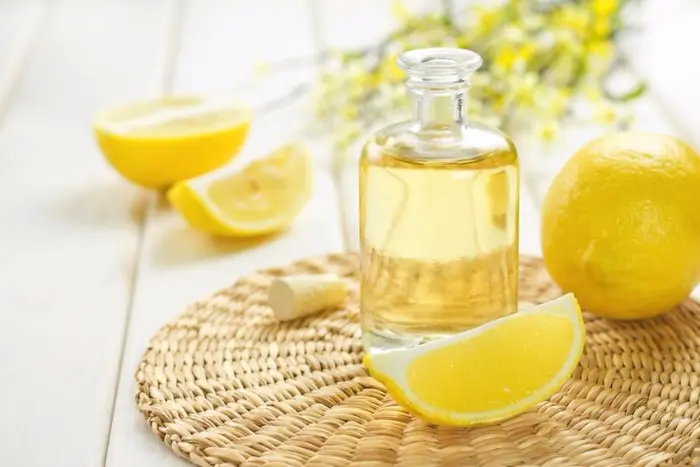
Lemon oil is undoubtedly one of the most versatile essential oils. It can be used in place of fresh lemon in water or other recipes, or you can add it to homemade cleaning products for a fresh lemon scent plus some antimicrobial action.
We love it for healthy, natural, DIY skin care though. Lemon oil’s constituents have compelling anti-inflammatory properties according to research, which can help address many types of skin inflammation from acne to rosacea.
It’s also a natural wound-healer. You can use lemon oil on cuts, burns, or sunburn to reduce swelling and decrease healing time. This is one for the first aid kit!
What essential oils do you use the most often? Let us know in the comments below, and share this with friends who could use some tips on how to get started, or which oils to stock up on!
SHARE THIS ARTICLE ON PINTEREST
Music, mountains, dogs, travel, food and friends.

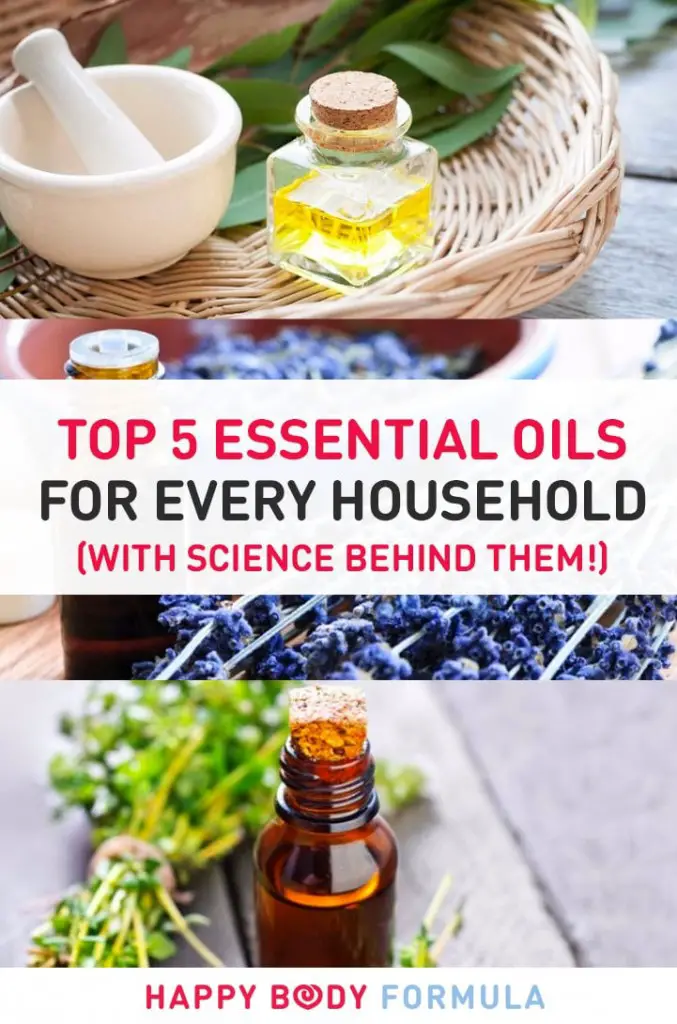

I like to use peppermint oil on a cotton swab almond the floor trim in my kitchen to deter ants! It seems they come by every spring, but just one or 2 applications and they disappear! I also read somewhere that it was a good mouse deterrant!